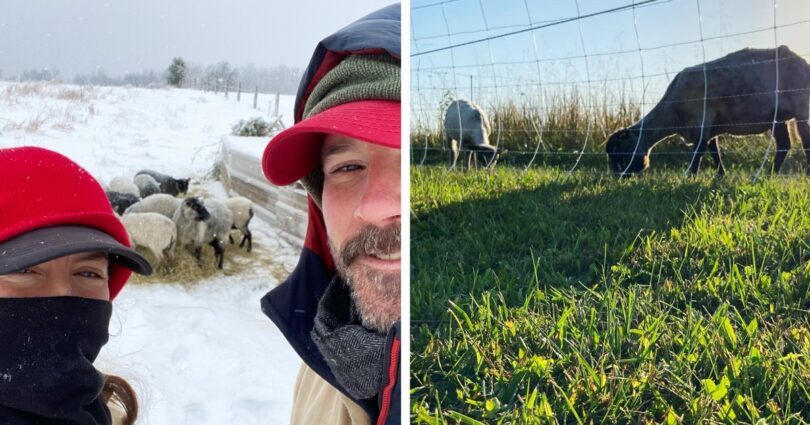On Thursday, the U.S. Department of Agriculture announced that it would be releasing the “first tranche” of funding paused under the administration’s review of the Inflation Reduction Act, totaling $20 million.
“It’s a pittance,” said Mike Lavender, policy director for the National Sustainable Agriculture Coalition, a farm and food advocacy group. “There is some semblance that this is moving, but it’s clearly not fast enough. The timing matters.”
Small farms may be especially vulnerable, as they tend to have tighter profit margins and more limited access to credit than larger operations. They also make up a large proportion of the farms participating in some of the federal grant programs that have been frozen, according to a recent USDA report.
“With this uncertainty, they are pulling out of farmers markets, canceling contracts already because they do not think they will have the capacity to meet them,” said Vanessa Garcia Polanco, government relations director for the National Young Farmers Coalition, an advocacy group for farmers and ranchers. “When all that funding is frozen, it sends a signal to them that their business plan is not safe.”
In a press release, Agriculture Secretary Brooke Rollins said on Thursday that “it is clear that some of this funding went to programs that had nothing to do with agriculture — that is why we are still reviewing.” She criticized what she described as the previous administration’s “disastrous policies of over-regulation, extreme environmental programs, and crippling inflation.”
The USDA did not say when additional money would be released.
Brian Geier, a farmer in Indiana, had been counting on a $10,000 grant from the USDA to expand the grazing area for his sheep, which he would then rotate with his farm’s hayfields to conserve the soil quality over time. Based on the expectation of receiving the grant, he agreed to purchase lambs this spring from a local sheep breeder.
Nine weeks from now, the lambs are expected to be born. But Geier still doesn’t know if or when he will receive the funds he was promised to build the fencing and water lines that he needs, so he scrambled to secure a loan from a friend to make sure the lambs will have a place to graze.
“Farmers have to shift when timelines change,” Geier said. “We have to adapt given the biological situations going on with animals and the seasons.”
Having received no updates from the USDA on his grant as of Friday afternoon, he is now rethinking his plan to purchase more sheep this summer for his farm, which he and his partner founded two years ago. “We’ll just have to scale that back and slow it down.”
Those receiving grants explicitly related to climate change are especially concerned, as the Trump administration has made targeting such programs a political priority.
Pasa Sustainable Agriculture, a nonprofit supporting farmers, manages about 200 climate-related projects funded by the USDA in 15 states, including the upgrades to Roell’s orchard in Massachusetts.
The group is now owed close to $2 million in reimbursement from the USDA, according to Executive Director Hannah Smith-Brubaker, who fears she will have to lay off staff if the freeze continues for much longer. “There are not going to be people to help those farmers and process those payments,” she said.
Roell sought out USDA funds to support a new orchard after Hurricane Helene destroyed beehives they were keeping in western North Carolina — just one of many extreme weather events that disrupted their beekeeping and honey production business.
“The point of this orchard was to make us more resilient,” Roell said. “We are able to have a diversified farm that has other products to offer and can offset losses when catastrophes like this happen. But instead, now, we have the federal government as a catastrophe.”
Source link








